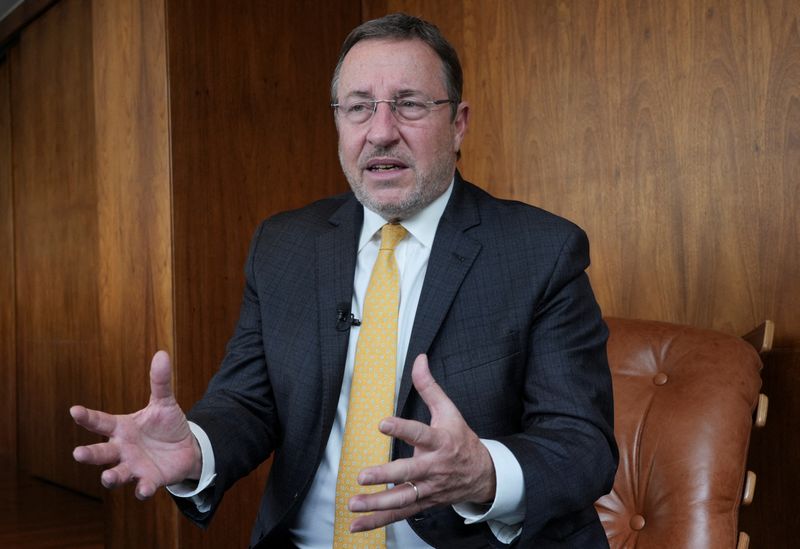By Andrea Shalal
WASHINGTON (Reuters) - The world's poorest countries are facing debt distress and fiscal crises as foreign investment wanes and the gap with richer economies widens, risking political destabilization and unrest, the United Nations Development Program chief said on Thursday.
UNDP Administrator Achim Steiner told Reuters that most Group of 20 major economies are heading for a soft landing, but 50 low-income countries with 3.3 billion people are unable to service their debts or are at risk of getting to that point.
Many of those countries faced a net outflow of funds to private and government creditors, with debt service payments outpacing foreign investments and virtually no ability to borrow on capital markets, Steiner said.
"Not only is it leaving countries stuck - they're on a hard landing or very much stuck in the status quota - they're beginning to not invest in what is going to drive development tomorrow," Steiner said in an interview.
Wealthier countries were investing heavily at the same time, which heightened the risk of a more pronounced divergence than even 20 years ago, he said.
The World Bank this week warned of a historic reversal of development, noting that half of the world's 75 poorest countries have a widening income gap with the wealthiest economies for the first time this century.
Steiner said the worsening outlook for poorer countries and growing geo-economic divisions could usher in a period of heightened social unrest that could ultimately have consequences for developed countries.
"Essentially we enter into a period of political destabilization," he said, noting that countries could face problems importing food or fuel, banking sectors could be strained and citizens could lose confidence in government.
For example in Sri Lanka, public anger boiled over after the country defaulted on some bond coupon payments, forcing then-President Gotabaya Rajapaksa to flee the country, Steiner noted.
He said people were also losing confidence in the global economic system generally, and while deepening problems in the poorest countries would not affect financial markets in advanced economies, they could lead to wars and other big risks.
Despite his worries, Steiner said institutions like the United Nations, International Monetary Fund and World Bank still serve an important purpose, although they need to become more equitable and sustainable and keep pace with a changing world.
"We need a place where we can interact," he said. "Especially in this day and age, we need this architecture - these platforms - more than ever," he said. "The challenges and risks we face are by definition only solvable globally."
One of the biggest hurdles is attracting more private investment to Africa and other developing regions, Steiner said, noting that a dearth of information means concerns about risk than are often greater than warranted.
UNDP last year called for the big three credit rating agencies to expand their presence in Africa and provide more relevant country-focused data for African countries.
Private investors had also failed to participate meaningfully in urgently needed debt restructuring, a main reason why recent sovereign debt cases had been dragged out.
